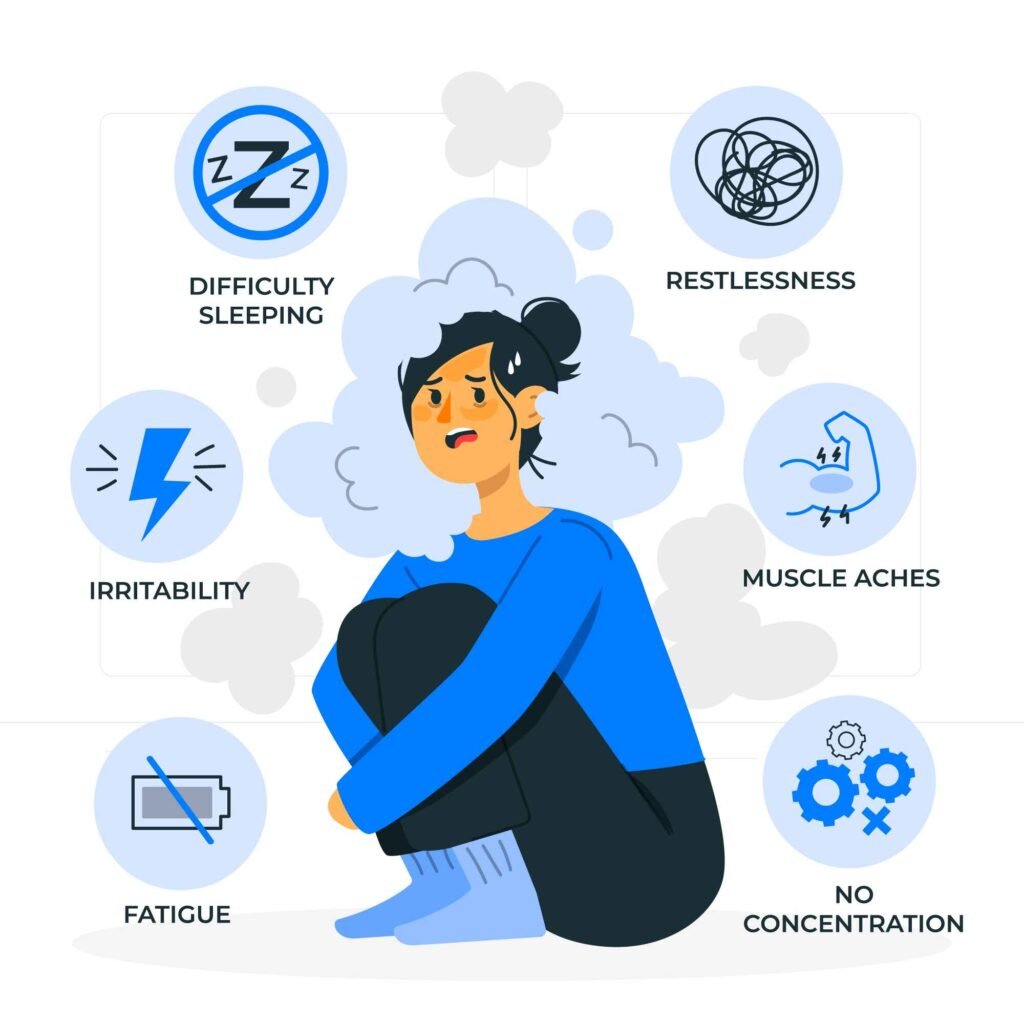
Do you ever feel overwhelmed, stuck in your own thoughts, or simply in need of a mental reset? You’re not alone! Emotional health is a crucial aspect of well-being, and journaling is a powerful tool that can make a world of difference in processing emotions and reducing stress. This article dives into how putting pen to paper (or fingers to keyboard) can help you manage your emotions, boost mental clarity, and lead to a healthier, happier you.
What Is Journaling and Why Does It Matter?
Journaling is the act of writing down your thoughts, feelings, and experiences. It’s more than just keeping a diary; it’s a way to connect with yourself, understand what’s going on in your mind, and actively engage in self-reflection. The simple practice of journaling offers profound benefits that support your emotional health, allowing you to manage your emotions effectively and reduce stress.
Whether it’s free-form writing, keeping a gratitude journal, or using prompts to dig deeper into your thoughts, journaling is a tried-and-tested method for mental well-being. Science backs it up too. Studies show that journaling can reduce anxiety, alleviate symptoms of depression, and even improve physical health.
1. Emotional Release and Stress Relief
One of the primary reasons people turn to journaling is for emotional release. When life gets stressful, bottling up emotions can lead to anxiety, irritability, and even physical health problems. Journaling offers a healthy outlet to release pent-up feelings. Think of it as an emotional detox—writing allows you to express your emotions without fear of judgment.
Research suggests that writing about your emotions can decrease stress and improve your mood. Journaling encourages a dialogue with yourself, helping you process negative experiences and make sense of your emotions [6†source][7†source]. It’s a simple yet effective way to offload stress and prevent it from piling up.
Free Writing: The Ultimate Stress Buster
“Free writing” is one of the most powerful techniques for emotional release. It involves writing whatever comes to mind without worrying about grammar, structure, or even making sense. It allows your thoughts to flow freely, providing insight into underlying worries and releasing emotional tension. Whether you feel overwhelmed by work or personal struggles, dedicating just 15 minutes a day to free writing can help you feel lighter and more in control.
2. Cognitive Reframing: Challenging Negative Thoughts
Our thoughts have a profound impact on how we feel. Negative thinking patterns can trap us in a cycle of anxiety and stress. Journaling offers an opportunity for cognitive reframing—challenging negative thoughts and replacing them with more balanced perspectives.
For instance, let’s say you’re anxious about an upcoming presentation. Writing about your fear allows you to explore the reasons behind it. Then, you can write down more positive or realistic thoughts: “I’ve practiced well, and I’m prepared. Even if I make a mistake, it’s okay—it’s part of the learning process.” This shift in perspective can be a game-changer in managing anxiety and promoting a positive mindset
3. Discovering Patterns and Self-Awareness
Self-awareness is key to emotional health. When you journal consistently, you start noticing patterns in your thoughts, behaviors, and reactions. You might discover that certain situations trigger stress or that particular people lift your spirits. These insights can be invaluable in understanding what makes you feel good and what doesn’t.
Journaling also allows you to track your progress over time. By looking back at past entries, you can see how far you’ve come, which helps build confidence and motivation. Understanding yourself better equips you to make healthier choices and develop coping strategies that work for you [12†source].
4. Gratitude Journaling: Focusing on the Positives
Gratitude journaling is a simple yet incredibly powerful practice that involves writing down things you’re grateful for each day. Research shows that regularly reflecting on positive experiences can boost your mood, enhance resilience, and even improve your sleep
When life feels overwhelming, gratitude journaling can help shift your focus from what’s going wrong to what’s going right. You could write about anything—from the big wins like getting a promotion to the small joys like enjoying a sunny day. This practice not only enhances positivity but also reduces stress and cultivates a mindset of abundance.
5. Improved Problem-Solving Skills
When you’re feeling stuck or facing a problem, journaling can help you brainstorm potential solutions. Writing down your thoughts about the problem allows you to see it from different angles. You might come up with solutions that you hadn’t thought of before.
Consider using “guided journaling” with prompts such as:
- “What are three possible solutions to my current problem?”
- “What’s the worst that could happen, and how would I handle it?”
- “What resources do I have to overcome this challenge?”
This process not only reduces the feeling of helplessness but also empowers you to take action, one step at a time
6. Building Emotional Resilience
Journaling is not just about venting—it’s also about building resilience. Writing about your strengths, accomplishments, and proud moments helps reinforce your ability to handle challenges. Reflecting on past successes reminds you that you have overcome obstacles before and can do so again
The practice of journaling encourages a growth mindset. Instead of viewing setbacks as failures, journaling helps you see them as learning opportunities. This resilience-building aspect of journaling can make you more emotionally equipped to deal with whatever life throws your way.
7. Practical Tips to Start Your Journaling Practice
If you’re new to journaling, you might be wondering how to get started. Here are some practical tips:
Find Your Space and Time
Choose a time of day when you’re least likely to be disturbed—perhaps in the morning with your coffee or at night before bed. Make it a calming ritual by finding a comfortable spot, using a nice notebook, and even lighting a candle.
Start Small and Stay Consistent
You don’t have to write pages and pages. Start with just 5-10 minutes each day. Remember, the key is consistency, not volume.
Use Prompts If You’re Stuck
Prompts can help if you’re unsure what to write about. Here are some examples:
- “What emotions am I feeling today, and why?”
- “What’s something I’m proud of this week?”
- “What’s a current challenge, and how can I face it?”
8. Overcoming Common Obstacles
Journaling is powerful, but it’s not without challenges. Many people struggle with the idea of being “good enough” at writing. Let’s set the record straight—your journal is for you. It’s not about spelling, grammar, or perfection. It’s about raw, honest reflection.
Some also find it difficult to write about painful emotions. While it can be challenging, it’s important to acknowledge that writing about negative experiences helps process and release them. However, remember to end each entry on a positive note—whether it’s something you learned or something you’re grateful.
9. Real-Life Testimonials: The Impact of Journaling
“I started journaling during a particularly stressful period at work. Initially, it felt awkward, but I soon found it incredibly therapeutic. Writing about my frustrations not only helped me release them but also offered new perspectives on how to handle challenging situations.” – Sarah, 29
“My gratitude journal helped me get through a tough breakup. Each day, I forced myself to find three things I was grateful for. Over time, my focus shifted from what I’d lost to what I still had, and it helped me heal.” – Mark, 35
10. Conclusion: The Lifelong Benefits of Journaling
Journaling is more than just an activity—it’s a journey of self-discovery, healing, and growth. From reducing stress and processing emotions to enhancing self-awareness and building resilience, the benefits of journaling for emotional health are undeniable. Start today, and watch how this simple practice transforms your relationship with yourself.
Final Call to Action
Ready to start your journaling journey? Grab a notebook and a pen, and just start writing! Whether it’s a few lines or a full page, each word you put down brings you closer to a more emotionally healthy and stress-free life.



